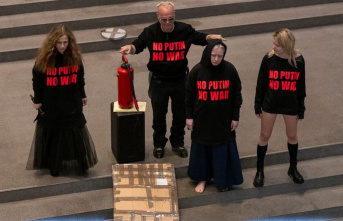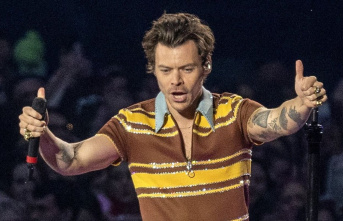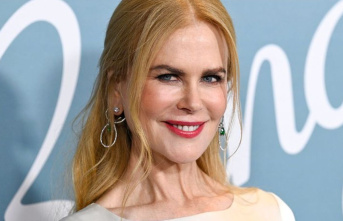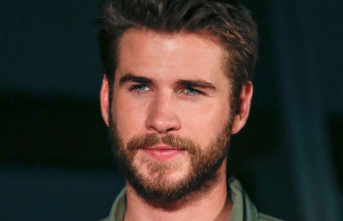The struggle of African Americans for racial equality in their countries lasts since several centuries. It begins in 1619, from their arrival as slaves in the plantations. Slaves, "maroons" rebel against their masters and establish colonies free, deep in the forests or in the mountains. After the abolition of slavery in 1865, thanks in part to the slave narratives and in the testing abolitionists, in their struggle for recognition of their status as full citizens is increasing.
also Read "it is possible to be both a Black and an American"
Black americans running for the Twentieth century
At the beginning of the Twentieth century, W. E. B. DuBois (1868-1963), thinker and historian, is one of the founders of the NAACP (the national Association for the advancement of colored people) who gives himself the objective of Black empowerment. It is even in Africa to forge links with the continent, whence many slaves. During the period between the two world wars, the Harlem renaissance marks a great period of vitality for literature, and the arts black american. Its influence extends to the current literary and political Negritude, a forerunner of african independence. But it is especially the civil rights struggle of the 1960s, that propels the Black americans in front of the international scene. Revisiting Gandhi's concept of non-violence, Martin Luther King to adapt it to the american reality in order to obtain peacefully the liberation of his people. Years later, Nelson Mandela will adhere to this philosophy in his struggle against apartheid in South Africa. If the United States, the right to vote for African-Americans is finally obtained and the racial segregation that officially abolished, in reality, racism remains ingrained in the company at all levels. However, through literature, music, cinema and sport, African-Americans continue to assert their presence in the cultural sphere of the world.
also Read the Ubuntu, the gift of Africa to the world ?
A journey fraught with pitfalls
today, despite the ascension to the supreme magistracy of Barack Obama, the first black president (2008-2017), the racial issue was back in force. Black Lives Matter, which is in its infancy, in 2013, a hashtag used on social networks has now become a movement inevitable. Created to denounce the brutality of police methods, as well as the injustice of the prison system, it is internationalized in anchoring itself in the diaspora. The situation in the United States is compounded by the fact that the right to carry a gun is enshrined in the second amendment of the Constitution. Thus, several hundreds of millions of Americans possess firearms. This multiplies the possibilities of which were fatal. This is evidenced by the shootings that regularly gave rise to a great deal of debate on the issue without really finding sustainable response. Also comes engraft in the collective imaginary shaped primarily by the film industry and the media the idea that the black man is dangerous, and that the gangs that we find in some ghetto neighborhoods are a factor of anarchy and chaos.
Since the 25th of last may, when George Floyd, an African American, is killed during his arrest by a white policeman, a wave of protests breaks out in several cities in the United States and abroad. Yet, only a few weeks later, another murder takes place, one of Rayshard Brooks, a young black man shot and killed in Atlanta by police, as he tries to escape from them. The movement Black Lives Matter is therefore one of the outcomes contemporaries of a struggle centenary.
massive Mobilization
It is nevertheless necessary to go further to try to understand why the outrage has been so strong and spread so quickly. The power of the Internet is to take into consideration, because it is a catalyst element. Facebook, Twitter and Instagram are platforms that allow you to shock images to make the tour of the planet at lightning speed. The tv stations then take over. The death of George Floyd was filmed live. Yes, one man was asphyxiated in front of our eyes and this made us accomplices of this crime. Nobody has been able to stop this suffocation. Or those who have filmed or those who watched. Impossible to say, " I didn't know ". We were put in front of our responsibilities. And this is the reason for which thousands of people of different racial origins, took to the streets to support the fight against racism.
A context exacerbated by the Covid-19
2020 is an election year in the United States. Three and a half years of trumpisme, of political polarization, exacerbated and now management of a catastrophic pandemic lead to a political awakening on the left and the center. Outside the united states, many people come to identify with the plight of Black americans after months of confinement, during which they have had the experience of personal sacrifices and restrictions collective. In addition, the confidence in governments in many countries is undermined by criticism of the management of the health crisis and its economic consequences.
Because the pandemic has exposed the fractures in society. In the hospitals, in the United States or Great Britain, for example, the greater number of the victims is found among the racial minorities. This disproportionate impact has not yet found a definitive explanation, but we know now that the economic inequalities, poor nutrition and health problems have made these communities particularly vulnerable. Gold in the two countries, no special provision was taken to protect them, even when data were already available. Blacks are also proportionately in excess of the 40 million Americans unemployed because of the pandemic.
many young people, black or white, feel abandoned. A global economic recession and unprecedented disruption in the education systems have convinced their future is blocked. The demonstrations that were held and continue to hold almost everywhere, although the pandemic is still not contained, we challenge the perception of risk. For the protesters, the danger of injustice is more tangible than that of the virus. "Racism kills," can you see on the placards. The anger of the youth expresses the rejection of the status quo, the return to "normal" advocated by the economists. (Re)launch, head first, in the society of excessive consumerism no longer seems a viable option. The degradation of the environment and the global warming did not disappear with the pandemic, which to many is rather one of the symptoms. The cessation of activity and unemployment showed the extreme fragility of a system that is being checked in a few months. Young people want to go in search of alternative pathways, and the denial of racism is a good place to start.
Read also The african countries are stepping up pressure on the Council of human rights
African Lives Matter
For its part, Africa is confronted with his demons. During this pandemic, the police brutality beat down more heavily than usual on the most deprived populations. Governments have chosen to impose batons health restrictions often impossible to maintain because of the deplorable living conditions for the majority. When "African Lives Matter" ?
The question is whether the story is being build in real-time. We are going to attend to a genuine reform of the institutions and a change of mentality ? Or are we going to do in the face of a confrontation between advocates of a new way of life and advocates a nationalist reaction ? The déboulonnage statues in the public space and the reconsideration of the status of the police are therefore very sensitive points. Nevertheless, progress is already visible. Everywhere, there are proposals for institutional reforms and further thoughts on slavery, colonization and systemic racism. Is it that this will be sufficient ? We don't know yet. But one thing is certain, in the words of James Baldwin, the great black writer in america : "We can't change everything you face, but you can never change what you don't fight. "
also Read Emmanuel Dongala : "This time the fire ! "
*Franco-Ivorian Véronique Tadjo has lived a long time in South Africa, where she was a professor at the university of the Witwatersrand, Johannesburg. As a novelist, she has devoted a book, "In the company of men" on the Ebola epidemic. She now lives between London and Abidjan.











